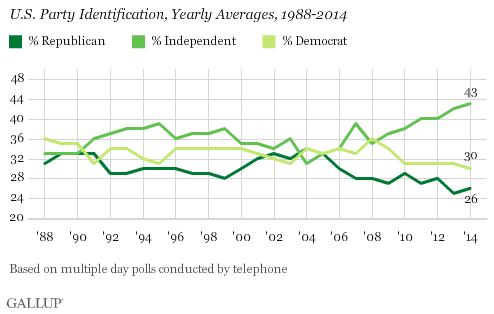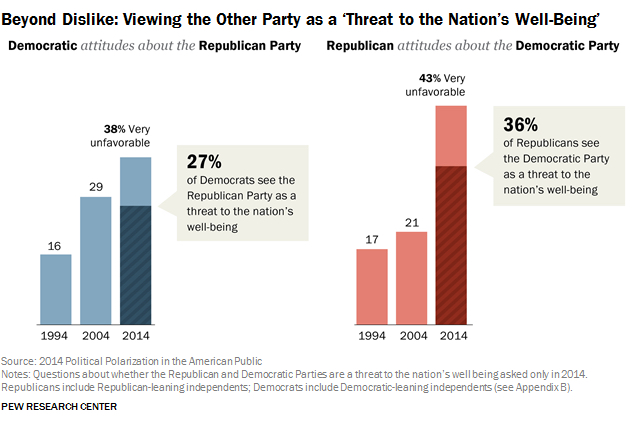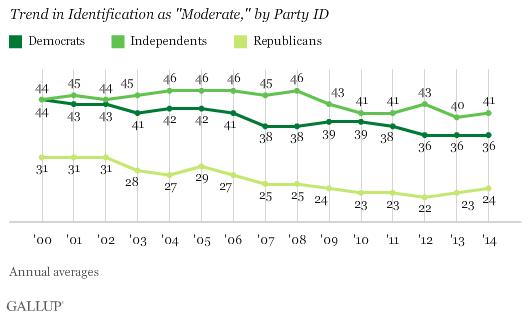Do Independent Voters Make American Politics More Polarized?

American voters are downright fleeing the Republican and Democratic parties to become independent voters. Since 2008, the portion of Americans who identify as independent has risen steadily, and since 2010 it has continued to break its own record, now clocking in at 43 percent.
But over the same time period, we’ve seen an uninterrupted increase in polarization in the American public, particularly among the dominant two parties. Republicans and Democrats now have far less ideological overlap than at any other point in modern U.S. history:
And more than ever, they actually see the other party as a "threat to the nation’s well-being."
We independents have left (or never joined) the dominant two-party system, in part to stay out of the madness.
But in doing so, I believe we are making the problem worse.Since 1990, 10 percent of the American public has removed itself from the Republican and Democratic parties. This is a big chunk, given that each of those parties has significantly less than one-third of voters.
If we assume for now that those registering as independent are the least ideologically aligned with the traditional party line, we start to see a dilemma emerge. If independent-minded voters remove themselves from dominant parties, then said parties become an increasingly isolated echo chamber of dogma.
Without fresh perspectives, each party is prone to become more convinced that its own platform is unquestionably correct, and that the other’s is so wrong that it threatens the nation itself. Indeed, both parties are growing less and less moderate over time.
Because the United States uses “first-past-the-post” as its voting system, only two dominant parties can exist in a stable system. This means that the flight of voters to independent registry cannot spawn a third party unless the voting rules are changed dramatically.
And if there’s one thing that Republicans and Democrats can agree on, it’s that they’d rather compete with one party than many. So don’t get too excited for that changing any time soon.
Where does this leave the two-party system? In 32 of the 50 states, independents cannot vote in primary elections.
This means that the remaining, ideologically-pure party voters control who runs in the general election. And because independents have left these increasingly extreme parties, extreme hard-liner politicians percolate to the general election. We’re stuck choosing one of them.
Until the rules for voting in either primary or general elections are changed significantly, leaving a party to become independent may only be leading to further extremism in American politics. It’s a sobering thought, but hopefully it's a call to action to lobby our own state legislatures to ensure we can vote in party primary elections.
It would be a start.






